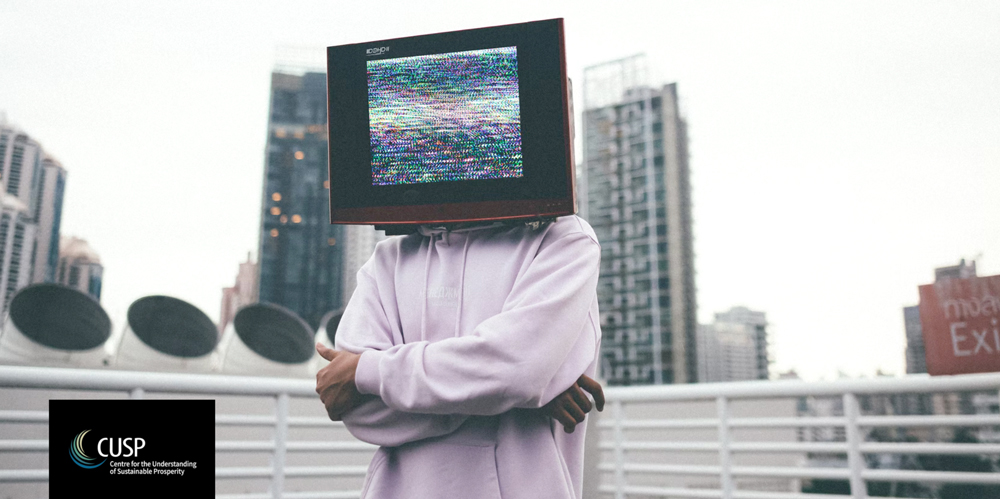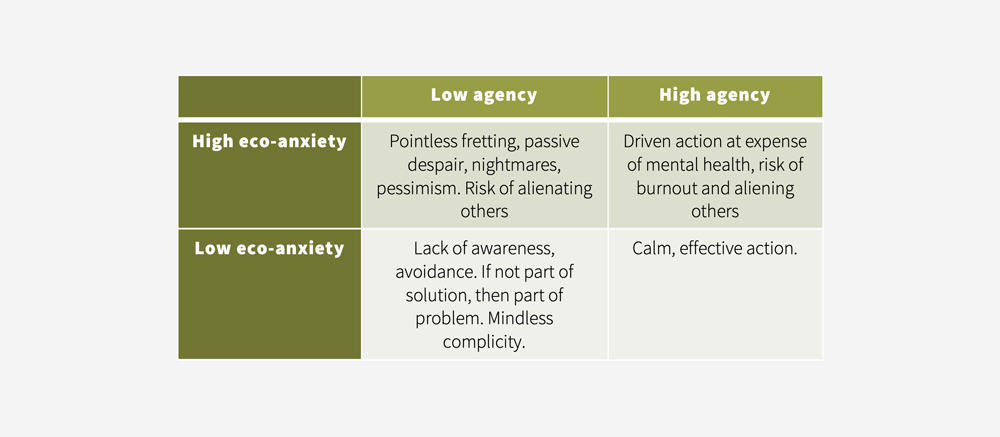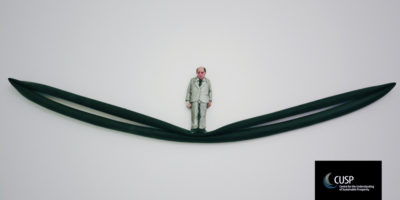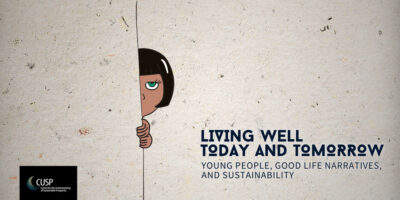Culture and Consumption
The Green Stories project in partnership with BAFTA have launched a new competition to create a short video that raises awareness of the role of fictional role models in promoting sustainable lifestyles, and call out those writers, producers and characters that implicitly promote excessive consumption as an aspiration.
Blog by Denise Baden

Governments can regulate and businesses can design greener products but the over-consumption at the heart of our climate and biodiversity crisis is predominantly a cultural issue—it is writers who are needed to give us characters that walk more lightly on the planet.
Currently most characters presented to us in typical cultural offerings are not ‘green’. Or if they are, they tend to be depicted as odd, abnormal or irritating. Indeed, the lead characters of popular series such as Emily in Paris, Lucifer, Riviera and And Just Like That… (sequel to Sex in the City) actively promote excessive consumption as an aspiration. In ten years we might squirm at the culture of waste implicit in such programmes in the same way we now squirm at the casual racism and sexism in seventies sitcoms. But we don’t have ten years to waste.
To address this, the Green Stories project in association with BAFTA Albert have launched a video competition (deadline 31st May 2022) that asks for a short video that calls out writers of characters that consume as if there were no environmental consequences, and asks them to develop characters that walk more lightly upon the earth. The best of the entries will be shared across the Green Stories and BAFTA networks and the winner will be the video that has the most views. There’s a long way to go, but if these videos go viral as is hoped, they will start the conversation.
This is important as my research across several contexts from business ethics education, to news stories, to readers’ responses to green-themed fiction clearly indicates that the kinds of role-models presented have behavioural effects, and often not what were expected. For example, business ethics lecturers typically use cautionary tales of ethics scandals to raise awareness of the negative consequences of unethical behaviour. Yet my study found that these led to cynicism which correlated with less ethical intentions. In contrast, those exposed to positive role-models of ethical business leaders had significantly more ethical intentions (Baden, 2014).
A later study of readers’ responses to short stories showed that whereas solution-focussed stories with green role-models were seen as inspirational, stories with a catastrophic focus often led to either passive despair, avoidance or irritation (Baden, 2019). This is an issue for the growing field of climate fiction which is mostly dystopian. Authors write with the best of intentions to warn of the likely consequences of continued inaction. However, research indicates that this can be counterproductive as fear leads some readers towards protective, insular, far-right responses rather than greener behaviours (De Meyer, et al. 2020).
A related issue is that dystopian tales can engender eco-anxiety, leading to mental health problems. Marks and Hickman (2021) for example found that the majority of young people believed that humanity is doomed and suffered from eco-anxiety.
Based on this research I developed a 2 x 2 matrix as follows:

The goal of the green stories writing competitions is to take people from the left-hand quadrants towards the bottom right quadrant of increased agency minus the eco-anxiety. Transformative sustainability solutions (such as moving away from GDP to a well-being index, personal carbon allowances, sharing economy etc.) are posted on the site and writers are encouraged to embed green solutions into fiction aimed at a mainstream audience. Green Stories also have upcoming short story competitions, a novel prize each December, and an Eco-Santa competition to redeem the most famous role-model associated with excessive consumption—Father Christmas.
In 2021, I published my own eco-themed rom-com Habitat Man which has been the source material for research whereby 80 readers provide feedback for a £25 voucher. Preliminary results (N=28) of a survey sent five weeks after finishing the book indicate that all of them adopted at least one green alternative as a result of reading the book. Habitat Man has also been rated highly by mainstream readers indicating it is possible to write mainstream fiction with a positive role-model that inspires readers to action.
Please share details of the video competition and green stories competitions across your networks. They are free to enter. We need urgently to move away from characters who represent mindless complicity – who wear different outfits every day, use private jets, drive gas guzzling cars etc. In the fictional world, fast fashion has no environmental impacts, deforestation doesn’t exist, the sea isn’t full of plastic and there is no climate crisis. Yet such programmes and characters determine our society’s cultural norms and values. We don’t need every character to wear sackcloth but it’s perfectly possible to have escapist fun without implicitly promoting excessive consumption. For the next series wouldn’t it be lovely to Emily in Paris using her marketing skills to promote the new ways of accessing clothes via sharing, borrowing, renting or swapping and vintage?
Link
Further details about the competition can be found on the Green Stories website: https://www.greenstories.org.uk/upcoming-competitions/short-video-competition/
References
Baden, D. (2014). Look on the bright side: a comparison of positive and negative role-models in business ethics education. Academy of Management Learning & Education, 13(2), 154-170. doi:10.5465/amle.2012.0251
Baden, D. (2019). Solution focused stories are more effective than catastrophic stories in motivating pro-environmental intentions. Ecopsychology, 11(4), 254-263.
De Meyer, K., Coren, E., McCaffrey, M., & Slean, C. (2020). Transforming the stories we tell about climate change: from ‘issue’to ‘action’. Environmental Research Letters, 16(1), 015002.
Hickman, C., Marks, E., Pihkala, P., Clayton, S., Lewandowski, E. R., Mayall, E. E., . . . van Susteren, L. (2021). Young people’s voices on climate anxiety, government betrayal and moral injury: A global phenomenon. Government Betrayal and Moral Injury: A Global Phenomenon.



